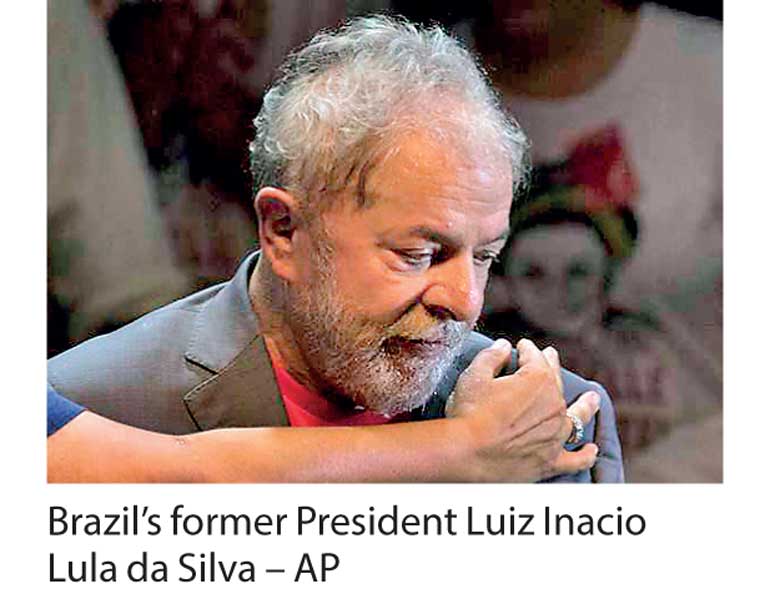Sunday Feb 22, 2026
Sunday Feb 22, 2026
Friday, 6 April 2018 00:00 - - {{hitsCtrl.values.hits}}
 Brasilia (Reuters): Yesterday (5 April), Brazil’s Supreme Court rejected former president Luiz Inácio Lula da Silva’s plea to avoid prison while he appeals a corruption conviction, in a vote that will likely end his political career and deepen divisions within the country.
Brasilia (Reuters): Yesterday (5 April), Brazil’s Supreme Court rejected former president Luiz Inácio Lula da Silva’s plea to avoid prison while he appeals a corruption conviction, in a vote that will likely end his political career and deepen divisions within the country.
The pivotal vote was cast by Justice Rosa Weber against Lula’s request to avoid jail and begin serving his 12-year sentence for accepting bribes. Weber was seen as the only swing vote and her decision sealed Lula’s fate. He may be jailed within a week.
Lula is still Brazil’s most popular politician despite his conviction and six separate pending corruption trials. He is the front-runner in all opinion polls for the presidential election in October, but his conviction will likely bar him from running.
The decision against Lula is a serious blow to the political survival of Brazil’s first working-class president whose career from a factory shop floor to high office is sinking in the corruption scandals that have rocked the political establishment and especially his Workers Party, which held power from 2003 until mid-2016.
Brazilian society remains deeply divided after Lula’s successor, President Dilma Rousseff, was impeached and removed from office amid a corruption scandal and economic crisis.
Lula’s conviction was upheld on a first appeal. Under Brazilian electoral law, a candidate is forbidden from running for elected office for eight years after being found guilty of a crime. Some exemptions have been made in the past, and the ultimate decision in Lula’s case would be made by the top electoral court if and when Lula officially files to be a candidate.
Lower court judges, the country’s top prosecutor and business groups urged the court to abide by its own 2016 ruling that defendants can be jailed if a conviction is upheld on a first appeal, as Lula’s was earlier this year.
Before that ruling, appeals in Brazil’s complex and badly backlogged legal system could stretched out for several years, guaranteeing impunity for those rich enough to afford lawyers who could launch countless technical appeals.
Tensions increased on Tuesday (3 April) when the commander of Brazil’s army weighed in with tweets calling on the court to stand guard against impunity. That rattled nerves across Brazil, which endured a 1964-85 military dictatorship and has a long history of coups interrupting democratic regimes.